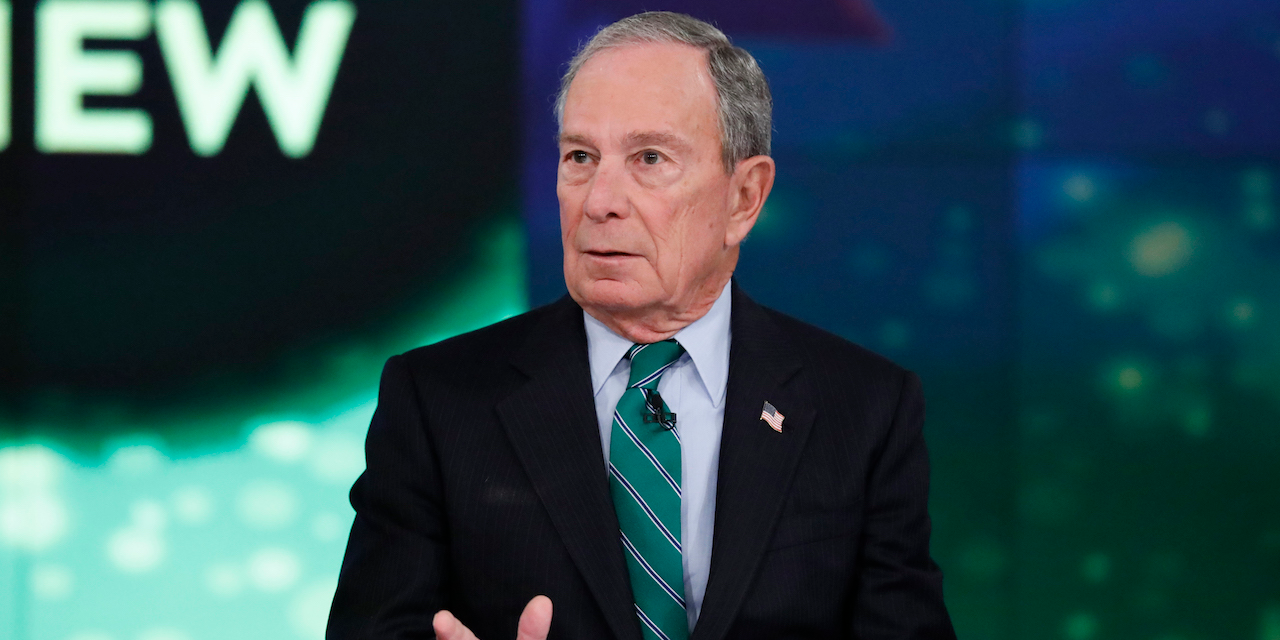- Michael Bloomberg, the billionaire former New York mayor and onetime Republican, announced on Tuesday that he won’t run for president in 2020.
- The media mogul has been welcomed into the Democratic fold in recent years and spent tens of millions of dollars on Democratic congressional candidates last year.
- But progressives have much to dislike about Bloomberg – and his candidacy would have been widely panned by an energized left.
Michael Bloomberg, the billionaire former New York mayor, announced on Tuesday that he won’t run for president in 2020, ending long-running speculation that the former Republican would join the Democratic primary field as a centrist option.
Bloomberg made his decision public in an op-ed on his news site, in which he pledged to direct his energy into a new climate initiative.
“While there would be no higher honor than serving as president, my highest obligation as a citizen is to help the country the best way I can, right now,” Bloomberg tweeted with a link to the statement. “That’s what I’ll do, including the launch of a new effort called Beyond Carbon.”
The former three-term mayor said he believed he would beat President Donald Trump in a general election but knows the path through a crowded primary would be challenging. He warned that Democrats should reject primary candidates who are too left-leaning.
"It's essential that we nominate a Democrat who will be in the strongest position to defeat Donald Trump and bring our country back together," Bloomberg wrote. "We cannot allow the primary process to drag the party to an extreme that would diminish our chances in the general election and translate into 'Four More Years.'"
And he said he's "less interested in talking than doing" and that a presidential campaign would hamper his already influential work on issues such as climate change, gun control, and education.
"As I've thought about a possible presidential campaign, the choice before me has become clear," he wrote. "Should I devote the next two years to talking about my ideas and record, knowing that I might never win the Democratic nomination?"
The media mogul, who was a Democrat before he ran for mayor as a Republican in 2001 and became an independent in 2007, reregistered as a Democrat in October.
He's denounced the GOP in no uncertain terms in recent months - expressing particular disagreement with Republicans on the issues he's championed, notably gun control and environmental protection.
Bloomberg has made his influence known in Democratic circles over the past few years. The billionaire and his organizations spent a staggering $112 million on the 2018 midterm elections, largely in support of Democratic House candidates.
Bloomberg's money undoubtedly made a difference for the party last cycle. Of the 24 House races that he poured $41 million into, 21 of those Democratic candidates won. Twelve of the winning races were in toss-up or red districts.
Despite his new allegiance to the political left, Bloomberg has clear differences with liberal Democrats on key issues, including policing, Wall Street regulation, and the #MeToo movement.
He's defended New York's controversial former stop-and-frisk policy, which he championed as mayor. (The policy was ruled unconstitutional by a federal judge in 2013 for its racially discriminatory effect.) He's also questioned whether the movement to hold perpetrators of sexual misconduct accountable has gone too far.
And he's broken with progressive Democrats, including the 2020 candidate Sen. Elizabeth Warren, on financial regulation.
Warren, like many other Democrats, has banned donations to her campaign from corporate PACs and has urged wealthy candidates not to self-fund their campaigns.
"Is this going to be a Democratic primary that is funded by the grassroots, that is done with grassroots volunteers, or is this going to be something that's just one more plaything that billionaires can buy?" Warren said on MSNBC in January. The Massachusetts progressive asked her fellow Democrats to say "no to the billionaires whether they are self-funding or whether they are funding PACs. We are the Democratic Party, and that's the party of the people.'"
Many progressives are hostile toward his candidacy, describing the former Republican as out of step with Democratic-primary voters.
"It's hard to imagine someone more out of touch with the Democratic base than a billionaire who defends racist policing tactics, advocates going soft on Wall Street, and dismisses the significance of the #MeToo movement," one New York-based Democratic strategist, who requested anonymity to avoid jeopardizing relations with fellow Democrats, told INSIDER in September. "Even millions of dollars couldn't make those viewpoints palatable to Democratic voters."
But Bloomberg has received an enthusiastic welcome into the Democratic fold over the past few years, winning praise from leadership, including House Speaker Nancy Pelosi.
"His name is synonymous with excellence," Pelosi said at a dinner in San Francisco last fall. "And he knows how to get the job done."

